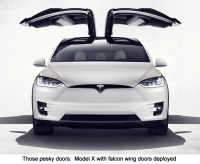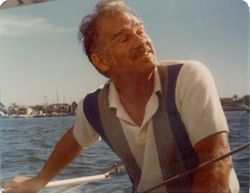
Now, my late father would have loved him some Trump. Despite an 8th grade education, he spent his whole life in the middle class. Freeways meant freedom to him. He thought he was being guided by passions, but mostly he was lucky. He was a small businessman who got out of electronics repair in 1973, when it was about to collapse, and used the Small Business Administration to go into the “security business,” buying a lock shop with borrowed money. Dad’s biggest advantage was that he was white. Being white let him buy into a safe suburb, which meant his kids went to good schools.
I didn’t like my dad, for reasons unrelated to this story. I saw freeways as dangerous. Instead of seeking a home in the suburbs, I sought one in-town. Never mind the crime, never mind the blacks and the browns and the dirt. To me freedom meant my bicycle.
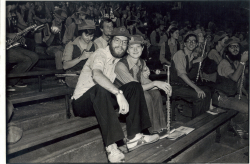
I deliberately sought a house near a MARTA train station. My dad thought I was crazy, paying $49,500 for a Craftsman box that was as old as they were. I was raised, morally, by black people, folks my parents’ age, who had been systematically denied the advantages my dad took for granted. For instance, dad hated being in TV repair. One neighbor became an activist because he’d been denied his dream of learning…TV repair.
My dad rode the ragged edge of his checking account all his life. I socked money away from the very first. My dad loved the suburbs. I came to love the city. And so on.
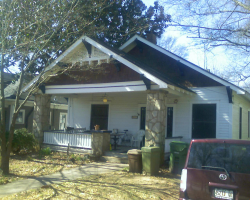
The gentrification train arrived here in the late 1990s, and when I looked up in this decade all my new neighbors were just like I’d been in the 1980s. They wanted to be intown, near transit, they used bikes to get around, and they had jobs in the knowledge industry. They were part of what Richard Florida called the “creative class,” and they gently pushed out my old neighbors, who had like my dad been part of the “working class.”
They pushed my neighbors out with money, and with patience. People age, they die, and my old friends were going, one by one. Edna died at 101. Jesse died at 96. They were my role models. They stayed in their own homes until the very end. They didn’t move to Florida. I call the addition we built Florida. My new neighbors look up to that.
It hit me, how far we’d come, when my son dragged me to the suburbs a few years ago, so he could get a new gaming computer. He was a lot like I’d been 30 years before. He needed the latest-and-greatest. He was willing to spend the money and be chained to a desktop, to get the high-performance gear his games required.
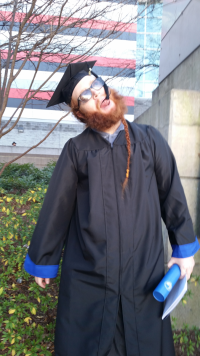
But my people, which is to say people like my dad, were gone. They’d been blown out. In the Obama economy, they could no longer make a living running small businesses. They could no longer get along without an advanced degree. My dad was an alcoholic, and the children of the suburbs had succumbed to its successors, to meth and to opiates. All the pathologies that my old black neighbors had fought against, in what my dad thought of as the urban hellhole, had moved out to the suburbs, and killed my dad’s people.
This is where Trumpistan was born. Out of the howling madness of people who thought they had done what they were supposed to, and found themselves, in the end, screwed by change. If they had worked with their hands, the jobs had moved to China. If they worked in the marketplace, with a travel agency or an insurance agency, a car dealership or a good job running a bank, well there was an app for that now. Even for their best-and-brightest, the future seemed to foreclose them, to have no place for them.
They hate me out there. They hate me and they hate my kind. They hate the cities, they don’t know them, they fear them. They don’t just hate my black neighbors. They hate their own brown and Asian neighbors. They hate my gay friends and gay neighbors. They see higher education as a racket, because the careers it gave them, as gatekeepers dealing with the market’s friction, wound up replaced by taps on their kids’ smartphones.
I could have easily been one of them, in so many ways. Had I been “lucky” and stuck at a daily newspaper, which is what my training taught me to want, I would have been laid-off by this time, because there’s an app for news. Instead, I had covered technology, as a freelancer, from my home, and I’m still making out all right. Had my wife not been the genius she is, I could have found my way into public relations, or advertising. I had those opportunities.
My dad lived in Trumpistan. I live in Techland. My kids are grown, my bills are paid, I have fabulous restaurants and shops within walking distance. The train can take me to the airport and thus the whole world is just an hour from my desk. My wife doesn’t have to drive, either. Yet we live in Atlanta, whose whole politics over the last 30 years has been wrapped up in the desires of Trumpistan – real estate, freeways, drive until you qualify. The politicians here are as shocked as anyone.
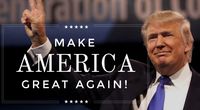
But millions have not. Those who listened to what society told them, when I was coming up in the 1970s, now face a bleak future. They’re dependent on government, and they resent that dependence. They’re dependent on cities, but see the cities as foreign territory. They live in an interdependent world, but they don’t see the benefits of it.
They’re mad as hell and they’re not going to take it anymore. They’re voting for Trump. If my dad were still alive he would, too.


